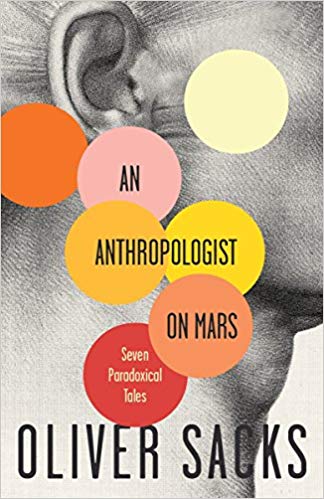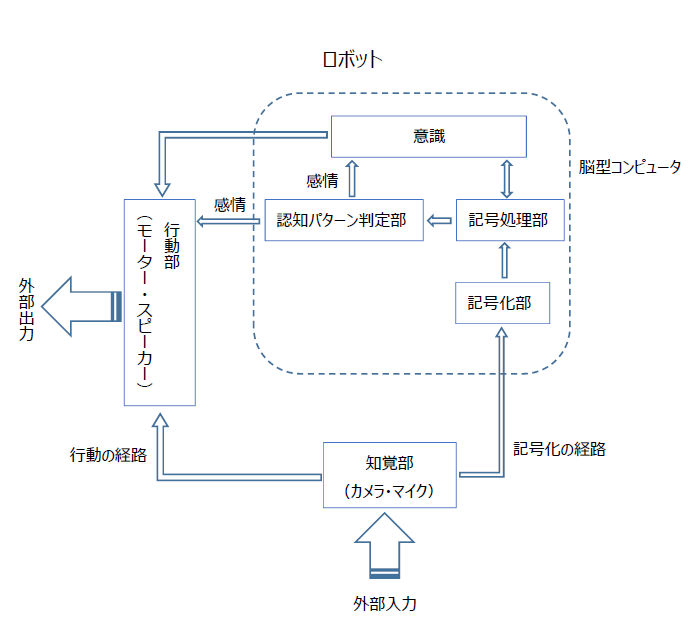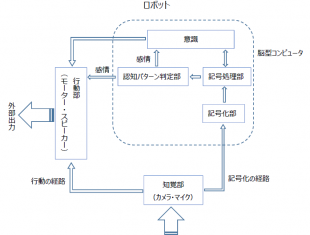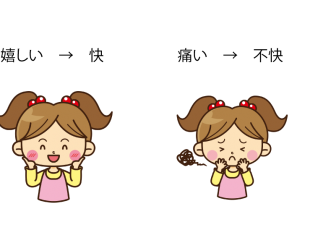
Necessary Functions for Brain-Inspired Computer:Part 3
Necessary Functions for Brain-Inspired Computer:Part 3
An Anthropologist on Mars

Today’s post will look at what functions are necessary for a brain to function from the book “An Anthropologist on Mars” written by Oliver Sacks.
Oliver Sacks studies autistic patients.
His study on Savant syndrome is particularly famous for their stark ability to memorize, draw and music.
It is often said that autistic people do not understand other people’s feelings well.
For instance, this book shares an episode of a 12-year-old girl who is smart and autistic.
One day this girl says ”Johnny is making a funny sound” and he goes to her to find Johnny crying loudly.
This girl did not know what crying meant.
From this episode, it can be suggested that it’s not that autistic patients don’t understand other people’s feelings; rather, they do not understand the emotion of crying. Moreover, they do not possess the emotion to cry.
To explain this in the diagram used in the last post below, words(symbols)are processed in the symbol processing department and when they are judged as some cognitive patterns in the cognitive pattern judgement department, emotions corresponding to such patterns arise.

Such emotions will be output in consciousness as well as reflected in actions.
When we are spoken ill by our friends or when we get told off by our teachers, we become sad.
When the emotion of sadness becomes bigger and cannot be contained, tears will come from our eyes and the sound of weeping.
This is the emotion of “crying”.
It is not only understood in head, it appears as a physical action.
Emotions are felt in our head and body.
When someone does not understand emotions, it can be said that their ”cognitive pattern judgement department” does not function well.
The cognitive pattern of “crying” does not exist.
They have never experienced the sensation of “crying”.
That’s why they can only express the situation they can see, that “someone is making a funny sound” even when encountered someone crying.
What we want to say will be expressed in some form of emotion in the end.
This way of thinking is the most important one for the ROBOmind-Project.
What the other is trying to say are expressed in emotions such as sad or happy.
Without understanding such emotions, one cannot have a smooth communication with others.
This is why autistic patients cannot have a communication with other people well.
Now, this lady Temple Grandin who appears in ” An Anthropologist on Mars”, despite being autistic, she has earned a PhD in zoology and she runs a livestock production facility on her own.
She is socially successful.
She can communicate with others well.
How is she capable of such things?
She has an ability to memorize things as they are in movies and to play them as they were in her head.
So she memorizes how people behave in different situations in movies.
Her memory records that which situation provokes someone to get angry or cry in videos, in order to understand people’s actions.
She says as if she has become an anthropologist on Mars.
Our human species observe what kind of situation brings what kind of emotion from Mars.
When she is talking to people, she is always looking for videos of similar situations. From that reference, she will be able to figure out that this situation makes people upset by playing such videos in her head.
This is a recreation of the function of ”cognitive pattern judgement department” into ”symbol processing department”.
“Symbol processing department” is executed by program.
The program of “symbol processing department” can be written over on its own, you can freely re-create a program from the scratch.
It means a program can create cognitive patterns.
What has been processed in “symbol processing department” will be presented in consciousness.
However, it is not an emotion.
In terms of the Wason four-card problem, it is just a result of calculation such as ”the back of a vowel should be an even number but it is an odd number” and ”this is incorrect”.
This is the processing for the rational thinker type.
On another hand, examples of output in emotions are ”underage is drinking alcohol” or ”I found the bad one!”, emotions that are similar to a sense of justice. (The underage in Japan refers to those under the age of 20. Japan has a law that prohibits drinking of alcohol by the underage.)
This is the processing for the intuitive type which naturally comes up on one’s mind rather than thinking in one’s head.
When processed in “symbol processing department”, the difference will be that it will have no emotions attached;but consciousness will receive the same result. So whether the other person is angry or sad can be understood by reason.
However, as ”symbol processing department” uses consciousness to think and process, it takes time and in a case of a complicated emotion, one must concentrate very hard.
She says she likes to read science fiction and science books but is not good with novels which involve complicated relationshis.
She adds that she does not fully understand the emotions to deceive someone or to get jealous.
For instance, when she reads a scene that reads a killer talks to a child playing in the park ”little girl, you have a pretty school bag”, normally you’d think ”don’t follow that guy!”, she thinks ”he must like children and very kind”.
She interprets what is being presented, and she cannot read the intention behind.
When she saw other people reading others’ mind, she would believe that they must be using telepathy.
And that why couldn’t she use such telepathy.
Seen from this way, we can see that emotions are critical in our communication.
A small talk goes on because naturally we pick up other people’s feelings.
When we ask a smart speaker, ”what’s the weather tomorrow”, it will answer ”unfortunately, it will rain tomorrow”.
Sure, it is convenient but that’s all it does.
There will be no active conversations.
If one can only answer questions accurately, it will not make a heart-felt conversation.
It is the same with how autistic patients cannot communicate well.
The necessary function that brain-inspired computer needs in order to communicate with humans is ”cognitive pattern judgement department” which works to understand emotions.
By understanding emotions, one can fully understand the true intention of the other.
Tomorrow’s sports day is going to be a lot of fun.
But kids who don’t run fast and don’t want to participate are dreading the day.
If asked about the weather of tomorrow by such kids,
is it correct to answer “unfortunately, it will rain tomorrow”?
A smart speaker which understands other people’s feelings would say,
“it will rain tomorrow so the sports day will probably be cancelled. Lucky you”.
This is the kind of AI speaker we all truly want.

 Necessary Functions for Brain-Inspired Computer:Part 1 ー The Wason Four-Card Problem
Necessary Functions for Brain-Inspired Computer:Part 1 ー The Wason Four-Card Problem Necessary Functions for Brain-Inspired Computer:Part 2
Necessary Functions for Brain-Inspired Computer:Part 2 What Are Emotions ? What is A Cognitive Pattern?
What Are Emotions ? What is A Cognitive Pattern?





